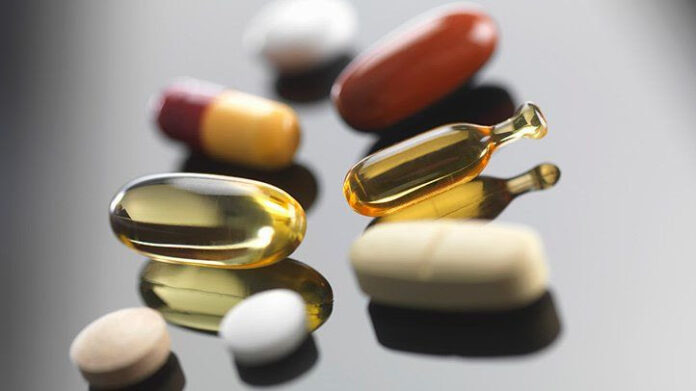If your body doesn’t produce enough thyroid hormone, certain vitamins and minerals may help. Learn about enhancing hypothyroid treatment with dietary supplements.
For some people, managing hypothyroidism isn’t just about taking medications. They also turn to vitamins and other nutrients for help in managing the condition, which occurs when the thyroid doesn’t make enough thyroid hormone to keep the body running normally.
“Vitamins and nutrients can help fight the underlying causes of thyroid disorders, such as autoimmune processes and inflammation, and help improve a dysfunctional thyroid,” says Raphael Kellman, MD, a functional medicine physician in New York City and author of The Microbiome Diet.
However, it’s important to understand that no one should supplement with vitamins and minerals without talking to their doctor first. “You want to first know your individual levels of these vitamins and minerals, which you can find out with a blood test,” Dr. Kellman says. Results may reveal you have a nutrient deficiency that requires you to get a higher amount of a certain vitamin or supplement.ADVERTISING“You also want to make sure you have all the facts on the vitamins and minerals you’d like to supplement with,” says MaryAnne Metzak, RD, CDN, a registered dietitian based in New York. And it’s important to keep the lines of communication open between you and your doctor. “Your doctor needs to know exactly how much of each vitamin and supplement you’re taking in case you have a negative reaction,” Metzak says.
Here are specific nutrients that may be beneficial for hypothyroidism.
Iodine Is Needed to Make Thyroid Hormone
You need an adequate supply of iodine to make thyroid hormone. The recommended minimum iodine intake for most adults is 150 micrograms a day, according to the National Institutes of Health Office of Dietary Supplements. Good food sources include milk, cheese, poultry, eggs, kelp, and other seaweeds, Kellman says. “But you have to be careful with supplementing iodine because too much can be problematic and actually cause hypothyroidism,” he says.
It’s important to speak with your physicians before consuming any iodine supplements due to the adverse effects it can have on hypothyroidism. A review published in September 2014 study in the journal Endocrinology and Metabolism found that excessive levels of iodine are unsafe and could result in hypothyroidism and autoimmune thyroiditis such as Hashimoto’s thyroiditis.
Vitamin B Is Important for Thyroid Function
“Vitamin B is important for people with hypothyroidism because the B vitamins have many interactions with thyroid function and hormone regulation,” Metzak says. It’s best to take a nutritional supplement that includes the entire vitamin B complex, and you may need additional vitamin B12 if a blood test reveals your levels are low, she says. Good food sources of vitamin B include whole grains, legumes, nuts, milk, yogurt, meat, fish, eggs, seeds, and dark leafy greens.
Selenium Is Essential for Thyroid Hormone Metabolism
“Selenium supports efficient thyroid synthesis and metabolism,” says Denise Londergan, RD, MPH, a registered dietitian in Ohio. Selenium may also reduce levels of antibodies against thyroid peroxidase — an enzyme that plays an important role in the production of thyroid hormones — in people with hypothyroidism, according to a study published in 2018 in the journal Diagnostics. Foods that provide selenium include tuna, shrimp, salmon, sardines, scallops, lamb, chicken, beef, turkey, eggs, and shitake mushrooms. “Or you can take 100 to 200 micrograms of selenium in supplement form per day,” Kellman says.
Zinc Helps Synthesize Thyroid Hormone
In addition to selenium, zinc plays a role in the conversion of the thyroid hormone T4 to T3. Selenium and zinc are beneficial in improving thyroid function and hormone levels. According to a study in Hormones: The Journal of Endocrinology and Metabolism, zinc improves T3 levels significantly. Food sources of zinc include shellfish, mollusks, meat, legumes, and nuts. The recommended daily intake of zinc is 8 to 11 milligrams for adult women and men, respectively, according to the Office of Dietary Supplements.
Tyrosine, in Combination With Iodine, Produces Thyroid Hormone
“Tyrosine is a nutrient involved in thyroid hormone production and conversion,” Kellman says. One of the best ways to get more tyrosine, an amino acid, is to make sure you’re getting enough protein, Londergan says. Aim for 10 to 35 percent of your calories from protein each day.
Vitamin D Improves TSH Levels
“Research has shown a strong association with vitamin D deficiency and people with hypothyroidism,” Metzak says. In a study published in the November 2013 issue of the International Journal of Health Sciences, researchers looked at the vitamin D levels of 30 people with hypothyroidism and 30 who didn’t have the condition and found that the vitamin D levels were significantly lower in those with hypothyroidism. A study published in 2018 in the Indian Journal of Endocrinology and Metabolism found that vitamin D supplements improved TSH levels in subjects with hypothyroidism as well as thyroid antibodies in people with autoimmune thyroiditis. You can get vitamin D from fortified milk, yogurt, and orange juice. “Food sources of vitamin D are often not adequate, however,” Kellman says. He recommends supplements for those who are vitamin D deficient. Your doctor can let you know if that’s necessary, and which dosage is best for you.
As with any chronic condition, a healthy diet can go a long way with hypothyroidism. “Eat an anti-inflammatory diet full of lots of fruits and vegetables and unprocessed foods, and limit sugar,” Londergan says.
Some Supplements Can Affect Thyroid Medication
While there are plenty of vitamins and supplements that can help people with hypothyroidism, there are also some that may interfere with thyroid hormone absorption. According to the Mayo Clinic, supplements such as calcium, iron, multivitamins containing iron, and antacids containing magnesium or aluminum can potentially have interactions with thyroid medications. They should be taken several hours before or after your thyroid medication to avoid an interaction. Talk to your doctor before taking any of these supplements.
Article first appeared on EveryDayHealth







